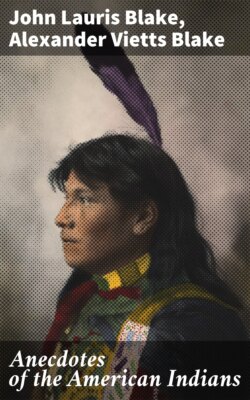Читать книгу Anecdotes of the American Indians - John Lauris Blake - Страница 5
На сайте Литреса книга снята с продажи.
HONOR AMONG INDIANS.
ОглавлениеTable of Contents
There is no class of human beings on earth, who hold a pledge more sacred and binding, than do the North American Indians. A sample of this was witnessed during the Winnebago war of 1827, in the person of Dekker-re, a celebrated chief of that nation, who, among four other Indians of his tribe, was taken prisoner at Prairie du Chien. Colonel Snelling, of the 5th regiment of infantry, who then commanded that garrison, despatched a young Indian into the nation, with orders to inform the other chiefs of Dekker-re’s band, that unless those Indians who were perpetrators of the horrid murders of some of our citizens, were brought to the fort and given up within ten days, Dekker-re and the other four Indians who were retained as hostages, would be shot at the end of that time. The awful sentence was pronounced in the presence of Dekker-re, who, though proclaiming his own innocence of the outrages which had been committed by others of his nation, exclaimed that he feared not death, though it would be attended with serious consequences, inasmuch as he had two affectionate wives and a large family of small children who were entirely dependent on him for their support; but if necessary, he was willing to die for the honour of his nation. The young Indian had been gone several days, and no intelligence was yet received from the murderers. The dreadful day being near at hand, and Dekker-re being in a bad state of health, asked permission of the Colonel to go to the river to indulge in his long accustomed habit of bathing; in order to improve his health. Upon which, Col. S. told him that, if he would promise, on the honor of a chief, that he would not leave the town, he might have his liberty, and enjoy all his privileges, until the day of the appointed execution. Accordingly he first gave his hand to the Colonel, thanked him for his friendly offer, then raised both his hands aloft, and in the most solemn adjuration, promised that he would not leave the bounds prescribed, and said, if he had a hundred lives, he would sooner lose them all than forfeit his word, or deduct from his proud nation one particle of its boasted honor. He was then set at liberty. He was advised to flee to the wilderness, and make his escape. “But no,” said he, “do you think I prize life above honor? or that I would betray a confidence reposed in me, for the sake of saving my life?” He then complacently remained until nine days of the ten which he had to live had elapsed, and nothing heard from the nation with regard to the apprehension of the murderers, his immediate death became apparent; but no alteration could be seen in the countenance of the chief. It so happened that on that day, Gen. Atkinson arrived with his troops from Jefferson Barracks, and the order for execution was countermanded, and the Indians permitted to repair to their homes.
